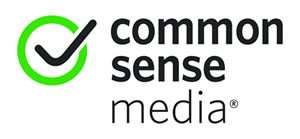Virtual summer camps–where kids head to the computer instead of the pool or park–are a thing now. But don’t worry: These aren’t the solitary, sedentary, screen-centered experiences you fear. Plenty of virtual summer camps offer kids the chance to make projects, investigate ideas, and explore the world. And many are free.
Going to camp online is a great way to keep your kids occupied during a “staycation” or between their other activities. It can also give kids something unique: individual attention. You, a babysitter, a grandparent, or even an older sibling act as virtual camp counselors, leading–and even learning alongside–kids and students. With many of the virtual camps below, you can mix and match activities to tailor the experience to kids’ interests.
Expect to be more involved if you go for the free, choose-your-own-adventure camps. But fee-based camps call for some adult participation, too. Check out these offerings:
Choose-Your-Own-Adventure Summer Camps
Start with a Book. Free; age 6 and up.
In addition to a summer science camp, this site offers a long list of themes, such as Art, Night Sky, and Weather Report, for kids to explore. For each theme, you get book suggestions (for all reading levels), discussion guides, hands-on activities, and related sites and apps. You’ll need to shell out for books if you can’t find them at the library.
PBS Parents. Free; age 3–9.
With an emphasis on summer reading, the PBS Parents’ site offers a variety of practical, step-by-step plans to incorporate books into the dog days of summer. In addition to the downloadable Summer Reading Chart and the “Book-Nik” guide to a book-themed picnic, you can use the Super Summer Checklist PDF to plan hands-on experiences.
DIY. Free and fee-based; age 7 and up.
This site offers dozens of skill-based activities (which it calls “challenges”) in a variety of categories, including Art, Business, and Engineering, that kids can do year-round. Every summer, DIY runs camps and shorter courses. Some of the camps have online counselors who interact with kids. Sign up to get notified of the latest offerings.
Make: Online. Free, but materials cost extra; age 12 and up.
The folks behind the maker movement offer weekly camps based on themes such as Far Out Future and Flight. You get a PDF with daily activities that support the theme, such as making slime and designing and flying kites.
Made with Code from Google. Free; age 12 and up.
A wide range of projects, including making emojis, animating GIFs, and composing music, is designed to ignite a passion for coding in teen girls. (There’s no stopping boys from doing these projects, though.) The site offers inspiration stories from female tech mentors as well as ideas to make coding social, such as a coding party kit.
(Next page: More online summer camps)
Structured Learning
JAM: Online Courses for Kids. Free for first 30 days; $25 per month (per kid) with discounts for yearly enrollment; age 8–16.
What can’t kids learn at this online school? There’s drawing, cooking, animation, music, and much more. Each course has a professional mentor and is broken down into easily manageable “quests” that kids can complete at their own pace.
Khan Academy. Free; age 6 and up.
While Khan Academy doesn’t offer specific camps, it provides meaningful, step-by-step exploration in a variety of topics, including math, science, and arts and humanities. Kids can sign up with a coach (a teacher, parent, or tutor) who can monitor their progress and suggest lessons. Kids also can earn badges by learning and teaching. The custom dashboard has a progress map that fills up as kids work their way through the skills.
Brain Chase. $79, extra for electives; age 7–14.
Created by two parents who were looking for a way to help their kids continue learning during summer, Brain Chase takes a creative approach to enrichment. It starts on June 19, 2017, and runs for six weeks; kids work on math, reading, and typing all while competing in a real-life treasure hunt for the chance to win a $10,000 scholarship.
Camp Wonderopolis. Free for campers; optional $25 instruction guide for parents; age 7 and up.
Sponsored by the National Center for Family Literacy (NCFL), this online camp lets kids explore topics such as weather, food, and technology. Each topic includes lessons, outdoor activities, videos, and additional reading suggestions for all ages. The 2017 theme is Build Your Own Wonderocity, where families explore the wonders of construction and engineering in 42 lessons.
Connected Camps. $69-$99; age 8-15. For tech-curious kids, check out Connected Camps, which offers week-long, instructor-led, Minecraft-based camps including coding, game design, and engineering. There are also courses in Minecraft and the Scratch programming language just for girls.
TechRocket. Free for a course sampling; memberships: $19/year, $29/month; age 10 and up.
Launched by iDTechCamp (the popular–and pricey–computer day and overnight camps), TechRocket offers online instruction in coding, game design, and graphic design. Each camp offers a variety of levels and challenges as well as a dedicated instructor.
 [Editor’s note: This article was originally published on Common Sense Media.]
[Editor’s note: This article was originally published on Common Sense Media.]
- 4 ways to encourage play in education - April 25, 2024
- CoSN IT Leader Spotlight: Lisa Higgins - April 25, 2024
- It’s time to pay student teachers - April 25, 2024

